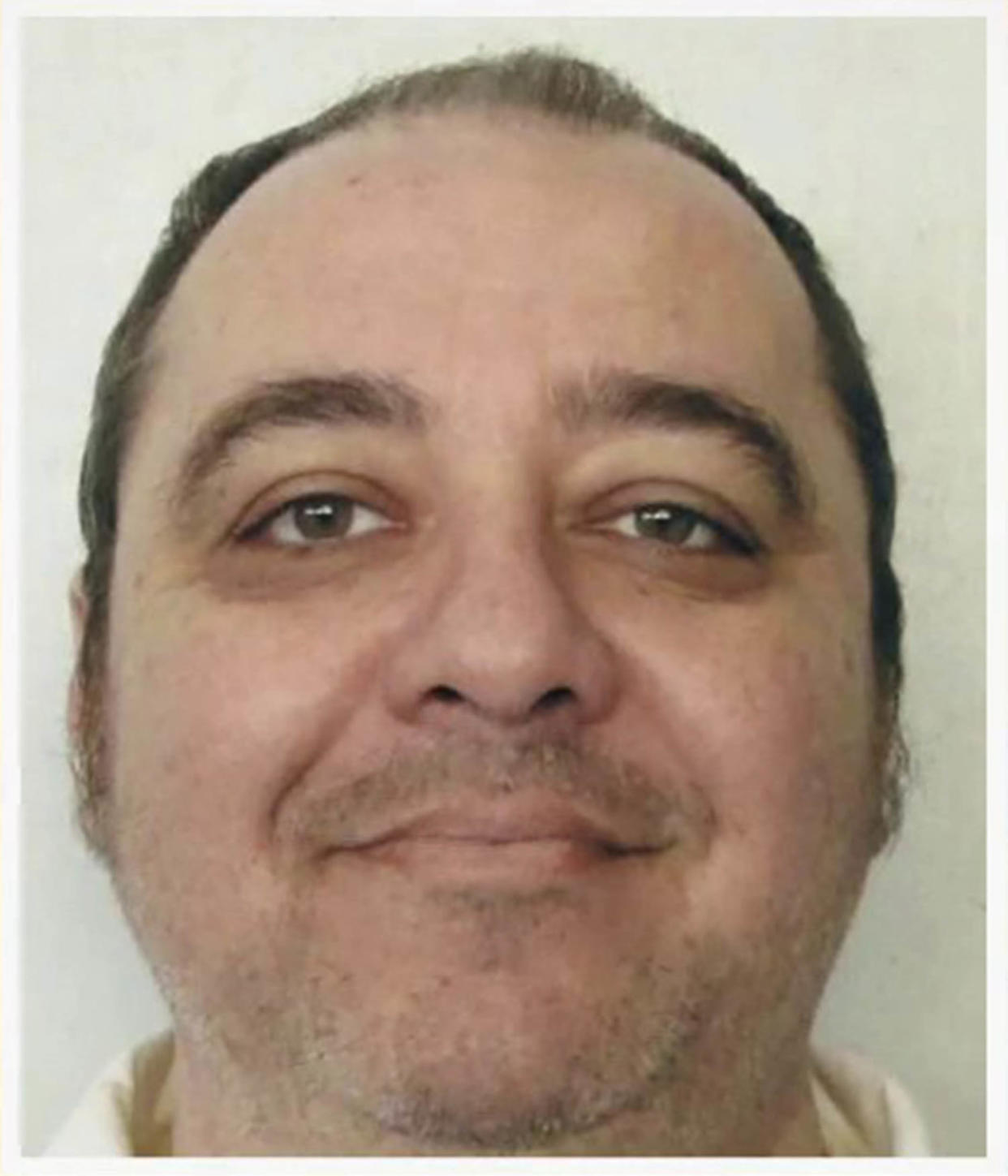Alabama carried out the first US nitrogen gas execution. Here's what to know
Alabama carried out the first nitrogen gas execution in the U.S. on Thursday evening on convicted murderer Kenneth Smith.
The execution began at 7:53 p.m., and Smith was pronounced dead at 8:25 p.m., officials said, adding that the nitrogen flowed for about 15 minutes and that Smith had labored breathing.
"Smith was holding his breath as long as he could," Alabama Department of Corrections commissioner John Hamm said during a press conference on Thursday. "He struggled against this restraints a little bit, there’s some involuntary movement and some agonal breathing. So that was all expected."
Smith was convicted of the 1988 murder-for-hire killing of a preacher's wife, Elizabeth Sennett. He had served 35 years in prison and was scheduled to be executed in November 2022, but the attempted lethal injection failed after Atmore prison staff members were unsuccessful in finding a suitable vein for the needle, according to NBC News.

Before Smith's execution via nitrogen gas, the Supreme Court rejected his legal team's appeal to stop the execution. Smith's lawyers argued the untested method could have led to prolonged pain and suffering.
State officials previously testified in court that nitrogen gas is "painless and humane."
Smith had nine visitors before his execution on Jan. 25, and had a final meal of steak, hashbrowns and eggs, according to the Alabama Department of Corrections.
According to media witnesses inside the chamber, Smith made a lengthy final statement before he was executed.
"Tonight Alabama caused humanity to take a step backward," Smith said. "I’m leaving with love, peace and light."
He also made the sign for "I love you" in sign language facing the room where his family was seated, according to the media witnesses.
The media witnesses reported Smith appeared to be conscious for several minutes into the execution. Smith shook and writhed on the gurney for about two minutes, followed by several minutes of deep breaths, according to the media witnesses.
"We are deeply saddened that the state of Alabama and the Alabama Department of Corrections have executed Kenneth Eugene Smith," Smith's legal team said in a statement to NBC News. "Nothing can undo the tragic consequences of the actions for which he was convicted, including the pain of the Sennett family and friends. Kenny’s life, however, should be considered in its full context."
His attorneys added Smith was only subject to execution because his trial judge "applied a since-repealed Alabama statute to override the jury’s 11 to 1 determination that his life should be spared," noting the practice is unavailable under current Alabama law, and has also been declared unconstitutional by the Supreme Court.
The Alabama Attorney General's Office did not immediately respond to a request for comment from NBC News, but Alabama Attorney General Steve Marshall said in a Jan. 25 statement that "justice has been served."
Rev. Jeff Hood, Smith’s spiritual advisor, also witnessed the execution.
"We also saw correction officials in the room who were visibly surprised and how bad this thing went," Hood said during a press conference.
The family of Sennett, who were also present for the execution, reflected on the impact of Smith’s crime.
"Kenneth Smith made some bad decisions 35 years ago and his death was paid tonight," said Mike Sennett, Elizabeth Sennett’s son.
Smith’s remains will be released to the Escambia County Coroner, which will be transported to a mobile lab for a postmortem examination, according to the Alabama Department of Corrections.
This article was originally published on TODAY.com
